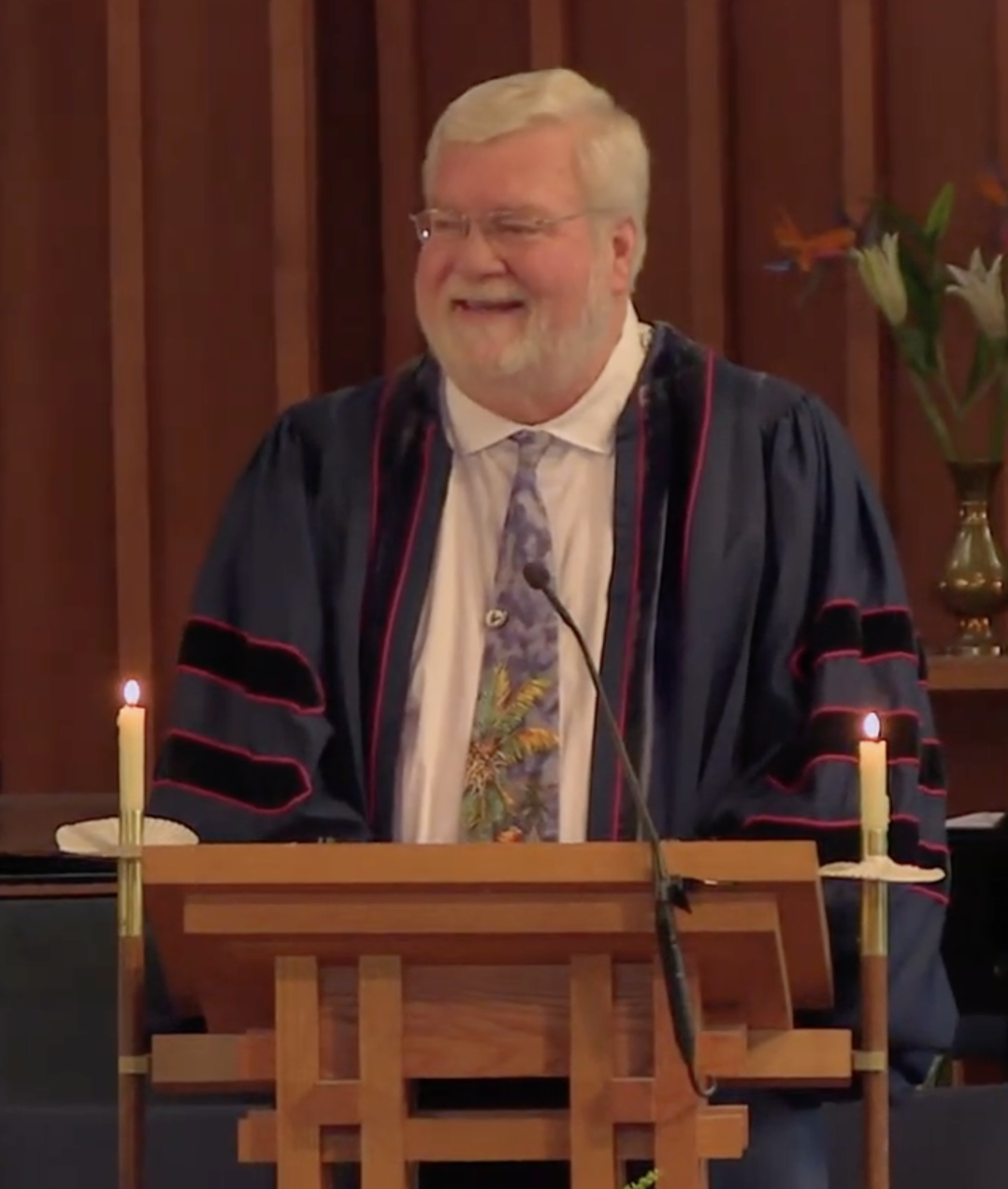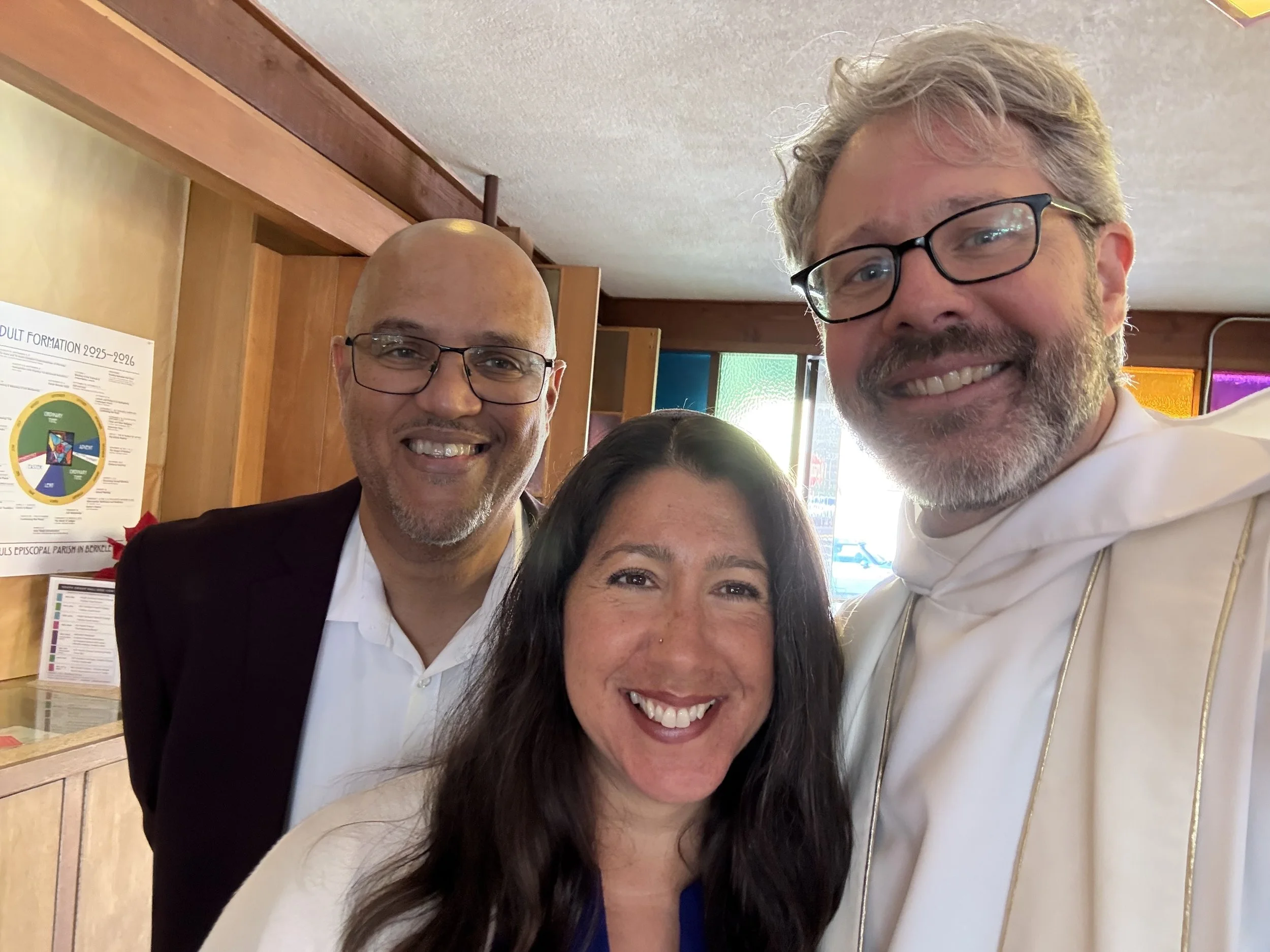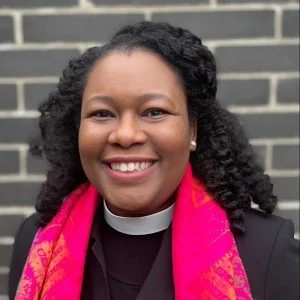
Sermons
All Preachers
- Alison Fischer
- Ari Wolfe
- Brother Emile
- Brother John
- Dan Carlson
- Dr. Scott MacDougall
- Emily Hansen Curran
- Harlowe Zefting
- Jack Bellioli
- José Quiñonez
- Marc Rieke
- Melissa Devereaux
- Michael Drell
- Michael Lewis
- Nathan Brostrom
- Nydia MacGregor
- Pastor Anthony Hughes
- Rabbi Rebekah Stern
- The Rev. Annie Jones
- The Rev. Clark Berge
- The Rev. Cn. Alissa Newton
- The Rev. Dani Gabriel
- The Rev. Dr. Bill McNabb
- The Rev. Dr. Daniel Prechtel
- The Rev. Dr. Mark Richardson
- The Rev. Dr. Paula Nesbitt
- The Rev. Dr. Ruth Meyers
- The Rev. Emily Boring
- The Rev. Helen Laverty McPeek
- The Rev. Joseph Delgado
- The Rev. Kristin White
- The Rev. Laura Eberly
- The Rev. Liz Tichenor
- The Rev. Maggie Foote
- The Rev. Marguerite Judson
- The Rev. Martin Elfert
- The Rev. Nikky Wood
- The Rev. Paula Nesbitt
- The Rev. Phil Brochard
- The Rev. Rachel Dykzeul
- The Rev. Will Bryant
- The Rt. Rev. Eugene Sutton
- The Rt. Rev. Marc Hadley Andrus
- The Rt. Rev. Nedi Rivera
- The Very Rev. Dr. Peggy Patterson
- Tom Varghese
- Tripp Hudgins
- the Rev. Canon Sierra Reyes
- the Rev. Michael Lemaire
All Months
- January 2018
- February 2018
- March 2018
- April 2018
- May 2018
- June 2018
- July 2018
- August 2018
- September 2018
- October 2018
- November 2018
- December 2018
- January 2019
- February 2019
- March 2019
- April 2019
- May 2019
- June 2019
- July 2019
- August 2019
- September 2019
- October 2019
- November 2019
- December 2019
- January 2020
- February 2020
- March 2020
- April 2020
- May 2020
- June 2020
- July 2020
- August 2020
- September 2020
- October 2020
- November 2020
- December 2020
- January 2021
- February 2021
- March 2021
- April 2021
- May 2021
- June 2021
- July 2021
- August 2021
- September 2021
- October 2021
- November 2021
- December 2021
- January 2022
- February 2022
- March 2022
- April 2022
- May 2022
- June 2022
- July 2022
- August 2022
- September 2022
- October 2022
- November 2022
- December 2022
- January 2023
- February 2023
- March 2023
- April 2023
- May 2023
- June 2023
- July 2023
- August 2023
- September 2023
- October 2023
- November 2023
- December 2023
- January 2024
- February 2024
- March 2024
- April 2024
- May 2024
- June 2024
- July 2024
- August 2024
- September 2024
- October 2024
- November 2024
- December 2024
- January 2025
- February 2025
- March 2025
- April 2025
- May 2025
- June 2025
- July 2025
- August 2025
- September 2025
- October 2025
- November 2025
- December 2025
- January 2026
- February 2026
Fifth Sunday after the Epiphany
The Rev. Dr. Bill McNabb
Returning to the pulpit after five years, the preacher reflects on finding a spiritual home at All Souls and celebrates a faith marked by joy, inclusivity, and life. Drawing on Jesus’ images of salt and light, he calls Christians to enhance the world with delight rather than gloom and to shine visibly against fear and oppression. Through stories from history, personal memory, and scripture, the sermon affirms that love, joy, and small acts of light can become hinge moments that change the world.
Fourth Sunday after the Epiphany
The Rev. Phil Brochard
This sermon links Jesus’s Beatitudes and Micah’s call to justice, showing that faith is not about achieving moral perfection or offering extravagant sacrifice, but about paying attention to where God already is. God’s blessing rests with the vulnerable, the grieving, and the oppressed. True faithfulness means acting with justice, kindness, and humility in places of suffering—embodied in acts of courage and compassion amid real human cruelty.
Third Sunday after the Epiphany
The Rev. Phil Brochard
Jesus begins his ministry not in peace but in response to political repression, moving away from power and proclaiming an anti-imperial vision of God’s reign. The kingdom of heaven is not about the afterlife but God’s justice breaking into the present, calling people to repentance, understood as transformation and new vision. Discipleship is risky, communal, and urgent, especially in a world marked by violence and cruelty. The sermon invites listeners to see where healing and justice are already happening—and to follow Jesus together into that kingdom.
Second Sunday after the Epiphany
The Rev. Emily Boring
The sermon proclaims that in a time marked by fear, cruelty, and division, the Christian calling is to witness to a deeper truth: love overcomes separation. Drawing on stories of communal resistance in Minnesota, the theology of John’s Gospel, and the season of Epiphany, the preacher names sin not as individual failure but as the illusion of separation. Jesus reveals that illusion and invites people into abiding relationship through love. Where separation feels strongest, love’s power is greatest—and the church is called to choose that love through movement, encounter, and courageous kinship.
First Sunday after the Epiphany: Baptism of Our Lord
The Rev. Phil Brochard, Pastor Anthony Hughes, & Rabbi Rebekah Stern
In a shared interfaith sermon, three clergy reflect on Isaiah 42 as a call to collective, gentle justice rooted in vulnerability rather than domination. Reading the “servant” as a symbol of communal responsibility, they explore how true power emerges through care, shared suffering, and relational strength. Together, they affirm that justice is not inevitable through force, but possible through communities willing to protect the fragile, resist coercion, and imagine a different future.
Second Sunday after Christmas Day
The Rev. Phil Brochard
This sermon reflects on marriage, family, and faith through the lens of Mary’s example in Luke’s Gospel. Love, it argues, is not about perfection but about the capacity to hold joy, conflict, and mystery together. Drawing connections between Mary’s response to Jesus, long-term marriage, and Christian commitment, the preacher emphasizes that true freedom lies in choosing to give oneself fully. Grace is found not in flawless relationships, but in the willingness to stay, treasure the hard moments, and be “in it for all of it.”
First Sunday after Christmas Day
The Rev. Dr. Mark Richardson
This sermon proclaims that Christmas reveals what is truly real: a world created from God’s longing to be present within it. Drawing from John’s Gospel, it affirms that God is found not above the material world but within it, shining light into real darkness without denying suffering. Through poetry, community stories, and personal testimony, the sermon calls listeners to recognize and embody small but powerful lights of hope, trusting that God’s creative love continues to work through fragile, human lives.
Christmas Eve 2025
The Rev. Phil Brochard
The sermon reimagines the Christmas story to recover its urgency and humanity, moving from a crowded, astonished stable to a close focus on Mary’s contemplative presence. While others celebrate, Mary treasures and ponders the moment, holding together joy, fear, and trust. Her response becomes a model for faith in chaotic times: God meets us where we are, without requiring escape or certainty, and invites us to trust that Emmanuel is already with us.
Fourth Sunday of Advent
The Rev. Emily Boring
The sermon reflects on a childhood fantasy of proving the virgin birth through science, using it to explore the deeper meaning of the incarnation. Rather than a mystery to be proven, the incarnation is revealed as God’s intimate entry into human life and suffering. In a world marked by violence and pain, Advent invites honest lament, the naming of darkness, and openness to a God who does not remove suffering but shares it. Christmas and the cross belong to one story: love meeting brokenness. This shared suffering is the true gift of Emmanuel, God with us.
Third Sunday of Advent
The Rev. Rachel Dykzeul
John the Baptist’s question from prison—“Are you the one?”—reveals Advent as a season of uncertainty rather than clarity. Jesus does not arrive as expected, and John’s doubt mirrors our own questions about where God is amid suffering and injustice. Yet Jesus responds not with shame but with a reframing vision: the kingdom is already breaking in through healing, hospitality, and good news for the poor. Uncertainty, the sermon teaches, is not a failure of faith but a pathway to deeper revelation.
Second Sunday of Advent
The Rev. Phil Brochard
The sermon uses Nomadland to illustrate how many people in America survive on society’s edge, making visible the injustice that keeps some secure while others live in precarity. This image leads to John the Baptist, a prophet living on the margins, whose harsh words to religious leaders expose both their complicity and their awareness that something is wrong. John calls them—and us—not to rely on privilege but to bear good fruit by confronting what is broken. Isaiah’s poetic vision of predators and prey living peacefully is presented as “impossible” imagery meant to expand our imaginations so we can see God’s realm breaking into the world. The preacher offers Elizabeth House as a real-world example where hope, community, and transformation reveal that such impossible peace is already emerging. We are called to see these signs, imagine the world God desires, repent, and live into it.
First Sunday of Advent
The Rev. Emily Boring
The sermon uses Mary Oliver’s poem about the world descending into winter “rich mash” to explore how loss, darkness, and stillness are not endings but the ground of renewal. While nature’s cycles teach this intuitively, trusting the same process within our inner lives—especially during Advent—can be frightening. Stillness can uncover unprocessed grief or desired changes we’ve avoided.
Though the Advent gospel speaks of upheaval and the unknown timing of Christ’s return, it reassures us in three ways: Christ meets us amid ordinary life; faith requires surrender rather than control; and in God, every ending becomes the seed of a beginning. Resurrection is a pattern that shapes all creation.
Advent invites us to enter our “inner winter” with trust—slowing down, keeping awake, and attending to hidden truths—supported by Scripture, liturgy, and poetry. The sermon ends with Oliver’s reminder that the vigor of what was is connected to the vitality of what will be.
Last Sunday after Pentecost: Christ the King
The Rev. Phil Brochard
The sermon asks, “If Jesus is a king, what kind of king is he?” Using Luke’s crucifixion narrative, it shows that Jesus is a king who refuses to save himself even when mocked by religious leaders, Roman soldiers, and the criminal beside him. His kingship is revealed not through power or self-preservation but through self-giving love. In contrast to modern cultural tendencies toward self-interest, the sermon calls Christians to a citizenship defined by mercy, solidarity with the vulnerable, and allegiance to a king whose authority is expressed in sacrificial compassion.
Twenty-Third Sunday after Pentecost
The Rev. Michael Lemaire
The sermon uses the story of the failed Millerite rapture predictions to explore why people long for the world to end: because the real world feels unbearably painful. Drawing on Jesus’s prophecy of the temple’s destruction, the preacher shows how ancient and modern communities alike cling to apocalyptic hope when everything familiar collapses. But prophecy and visions of a perfect future can become escapist fantasies. Isaiah dreams of a world without suffering, yet our own world remains filled with war, grief, and injustice. Instead of waiting for God to fix everything, the gospel points us toward endurance, love, and the everyday practice of kindness. Like Naomi Shihab Nye’s poem teaches, only when we know sorrow can we recognize kindness as the deepest thing. In a broken world, kindness is the call, the task, and the sustaining presence.
Twenty-Second Sunday after Pentecost
The Rev. Phil Brochard
The sermon reflects on All Saints and All Souls traditions—especially this year’s ofrenda—as ways of making the hope of resurrection tangible. It connects the congregation’s questions about the afterlife with the Gospel story in which the Sadducees challenge Jesus using an exaggerated scenario about a widow marrying seven brothers. Their real goal is to mock belief in resurrection.
Jesus responds by meeting them within their own scriptural framework, pointing to God as the God of Abraham, Isaac, and Jacob—living beings to God. His teaching doesn’t describe the mechanics of the afterlife but emphasizes that we will be known by God and that earthly structures like marriage cannot contain the fullness of intimacy and joy in the life to come. The sermon concludes that our identities remain, our relationships matter, and nothing will hinder the deep communion God intends for us after death.
Feast of All Saints and All Souls
The Rev. Canon Sierra Reyes
On All Saints’ Sunday, the preacher reflects on the hymn “When the Saints Go Marching In” and its line, “Lord, I want to be in that number.” The sermon explores the human longing to belong among the saints and reassures the congregation that sainthood is not earned but given — an identity rooted in God’s grace and baptismal love. The preacher honors both the famous “capital-S Saints” and the everyday “lowercase-s saints” who shaped our lives.
As the church baptizes new members, the community joins an unbroken line of faith. The life of discipleship, the preacher reminds us, is not easy — it is a journey through hardship, calling for courage and “holy trouble” in pursuit of justice and truth. The hymn, reimagined as a defiant protest song, proclaims that God’s love conquers death and despair. To be in that number means to live as one already beloved, bearing witness to God’s enduring grace and hope.

Sermon Archives ––––
Until we get migrate over our archives, you can head over to our old site to listen to past sermons.








